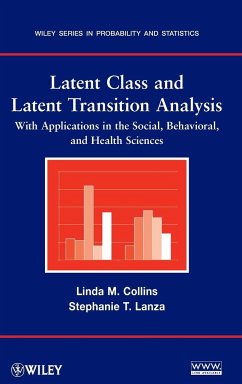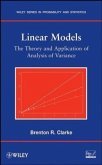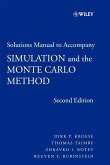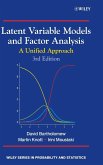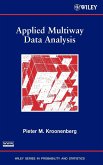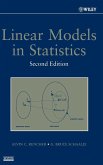A modern, comprehensive treatment of latent class and latent transition analysis for categorical data
On a daily basis, researchers in the social, behavioral, and health sciences collect information and fit statistical models to the gathered empirical data with the goal of making significant advances in these fields. In many cases, it can be useful to identify latent, or unobserved, subgroups in a population, where individuals' subgroup membership is inferred from their responses on a set of observed variables. Latent Class and Latent Transition Analysis provides a comprehensive and unified introduction to this topic through one-of-a-kind, step-by-step presentations and coverage of theoretical, technical, and practical issues in categorical latent variable modeling for both cross-sectional and longitudinal data.
The book begins with an introduction to latent class and latent transition analysis for categorical data. Subsequent chapters delve into more in-depth material, featuring:
A complete treatment of longitudinal latent class models
Focused coverage of the conceptual underpinnings of interpretation and evaluationof a latent class solution
Use of parameter restrictions and detection of identification problems
Advanced topics such as multi-group analysis and the modeling and interpretation of interactions between covariates
The authors present the topic in a style that is accessible yet rigorous. Each method is presented with both a theoretical background and the practical information that is useful for any data analyst. Empirical examples showcase the real-world applications of the discussed concepts and models, and each chapter concludes with a "Points to Remember" section that contains a brief summary of key ideas. All of the analyses in the book are performed using Proc LCA and Proc LTA, the authors' own software packages that can be run within the SAS(r) environment. A related Web site houses information on these freely available programs and the book's data sets, encouraging readers to reproduce the analyses and also try their own variations.
Latent Class and Latent Transition Analysis is an excellent book for courses on categorical data analysis and latent variable models at the upper-undergraduate and graduate levels. It is also a valuable resource for researchers and practitioners in the social, behavioral, and health sciences who conduct latent class and latent transition analysis in their everyday work.
Hinweis: Dieser Artikel kann nur an eine deutsche Lieferadresse ausgeliefert werden.
On a daily basis, researchers in the social, behavioral, and health sciences collect information and fit statistical models to the gathered empirical data with the goal of making significant advances in these fields. In many cases, it can be useful to identify latent, or unobserved, subgroups in a population, where individuals' subgroup membership is inferred from their responses on a set of observed variables. Latent Class and Latent Transition Analysis provides a comprehensive and unified introduction to this topic through one-of-a-kind, step-by-step presentations and coverage of theoretical, technical, and practical issues in categorical latent variable modeling for both cross-sectional and longitudinal data.
The book begins with an introduction to latent class and latent transition analysis for categorical data. Subsequent chapters delve into more in-depth material, featuring:
A complete treatment of longitudinal latent class models
Focused coverage of the conceptual underpinnings of interpretation and evaluationof a latent class solution
Use of parameter restrictions and detection of identification problems
Advanced topics such as multi-group analysis and the modeling and interpretation of interactions between covariates
The authors present the topic in a style that is accessible yet rigorous. Each method is presented with both a theoretical background and the practical information that is useful for any data analyst. Empirical examples showcase the real-world applications of the discussed concepts and models, and each chapter concludes with a "Points to Remember" section that contains a brief summary of key ideas. All of the analyses in the book are performed using Proc LCA and Proc LTA, the authors' own software packages that can be run within the SAS(r) environment. A related Web site houses information on these freely available programs and the book's data sets, encouraging readers to reproduce the analyses and also try their own variations.
Latent Class and Latent Transition Analysis is an excellent book for courses on categorical data analysis and latent variable models at the upper-undergraduate and graduate levels. It is also a valuable resource for researchers and practitioners in the social, behavioral, and health sciences who conduct latent class and latent transition analysis in their everyday work.
Hinweis: Dieser Artikel kann nur an eine deutsche Lieferadresse ausgeliefert werden.

